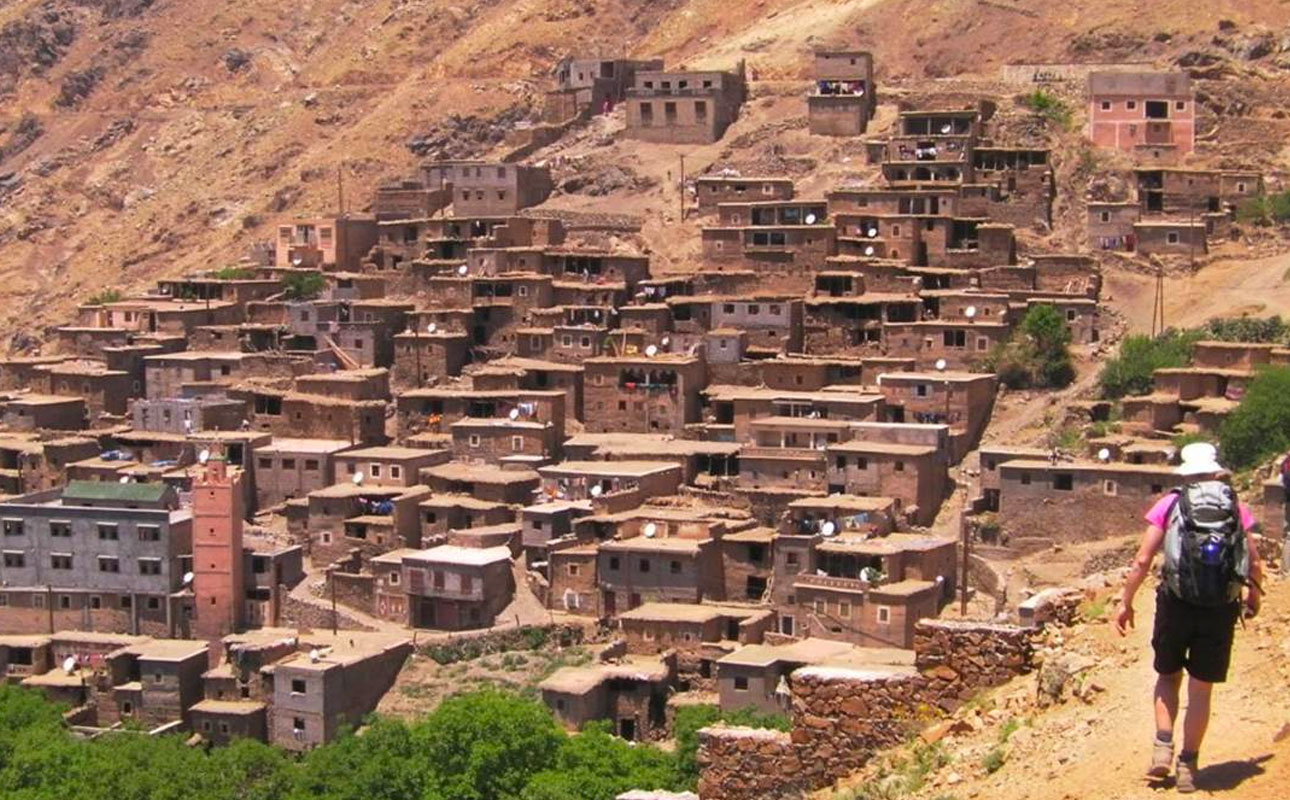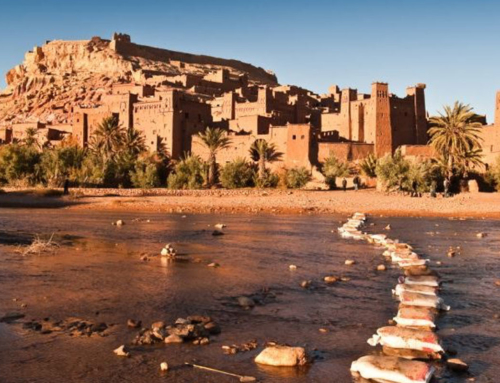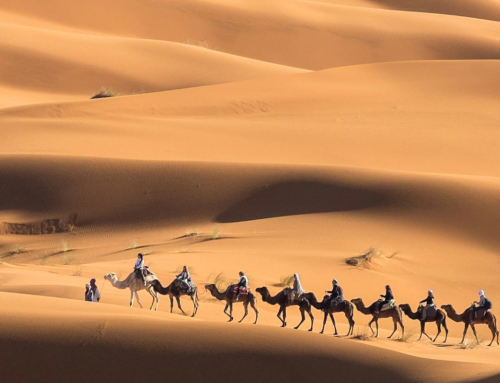The Atlas Mountains extend some 2,500km across northwestern Africa. Spanning Morocco, Algeria and Tunisia, separating the Atlantic and Mediterranean coastline from the Sahara Desert. Actually a series of ranges with diverse terrain, climates and wildlife, the Atlas are dotted with Berber villages and riven with canyons and ravines. The highest peak is 4,167m Toubkal, which lies within Morocco’s Toubkal National Park.

Bring in the tourists
Many locals cite the tranquility that life in the Atlas Mountains has to offer as an asset. “It’s better than a city because in cities there’s a lot of noise, cars, and pollution. But here it’s nice because it’s quiet, (and there’s) fresh air,” says resident Rachid Souktan. This is a sentiment that is increasingly reflected worldwide, as tourists have started to arrive in increasing numbers in recent years.
Ancient culture thrives around snowy mountain 06:40 The majority trek out to Imlil, which has become a kicking off point for skiers and mountain climbers alike. Kasbah Du Toubkal, the village’s first hotel, opened its doors in 1995. Kasbah started its life as a colonial mansion, but later fell into ruin.
“There was nothing at the Kasbah before. It was completely abandoned and mostly destroyed,” says Omar Ait Bahmed, the hotel’s manager and part-owner. Since, it has attracted some high-profile travelers, including Martin Scorsese, who shot parts of his film “Kundum” in the hotel in 1997.



